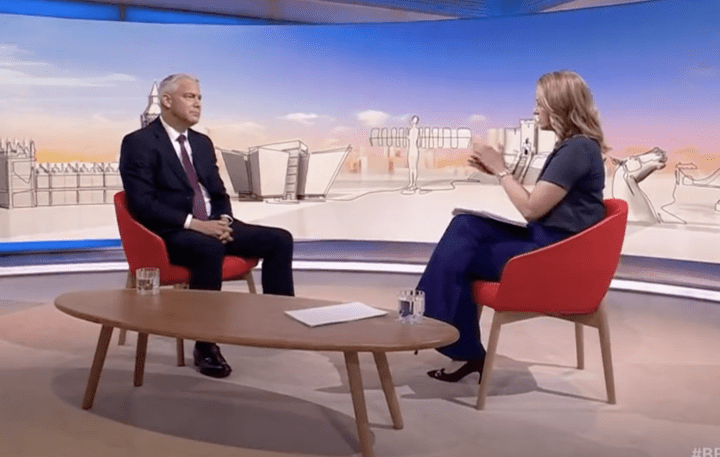‘The biggest workforce expansion in NHS history.’
At a time when the NHS is under extreme pressure, with staff shortages and strikes causing widespread disruption, Health Secretary Steve Barclay outlined the government’s £2.4 billion plan to employ more than 300,000 new doctors and nurses over the next few years. He clarified to the BBC’s Laura Kuenssberg that this would be additional money from the Treasury – although he was vague when asked to explain how it would be funded.
What progress has been made on Sunak’s five pledges?
Sophy Ridge attacked the government’s record on its five main pledges, asking Barclay what would happen if the five targets set out by Rishi Sunak weren’t met. She pointed out that there were more people waiting for treatment from the NHS than ever before, but Barclay claimed the government’s plan was working, and that it had successfully reduced the longest waits as a first priority.
‘We’re scapegoating the NHS with far too much of society’s problems.’
Much of the discussion around healthcare is focused on problems with funding and staffing, but the panel on Kuenssberg’s programme were united in arguing that a greater emphasis on prevention was essential to ease the increasing strain on the NHS. Former health minister Lord Bethell said that long waits for treatment are an example of the NHS being forced to ration its services, and that measures to tackle issues such as gambling and obesity are necessary to make the country healthier as a whole.
Do public sector pay rises drive up inflation?
Ridge asked National Education Union leader Mary Bousted if she had any sympathy with the government’s suggestion that public sector pay rises were unsustainable because they contribute to inflation. Bousted strongly rejected the argument, claiming that private sector profits were a much more significant factor in inflation. She also suggested that investment was absolutely necessary to prevent the exodus of workers from the public sector, before the services that they provide collapse.
How would Labour deal with the negotiations with teachers?
Shadow education secretary Bridget Phillipson spoke about Labour’s plans to offer teachers who complete their first two years in the classroom a single payment of £2,400. She claimed the government had not spoken at all with the teaching unions since April, and that Labour would be more open to negotiation – but refused to offer any specifics about whether Labour would accept the 6.5 per cent pay rise suggested by the pay review body.
‘Doing a space walk is like nothing you can describe.’
Astronaut Christina Koch, who is set to become the first woman to travel around the moon next year, spoke to Kuenssberg about the experience of spending almost a year in space and the ‘supreme honour’ of doing a space walk. She said that a mission to Mars was planned for the 2030s – and that she hoped to be on it.






Comments